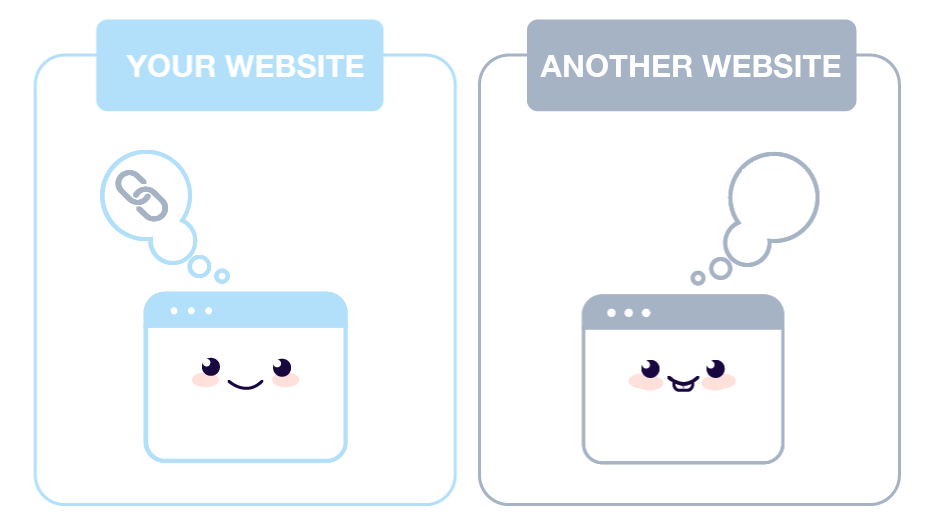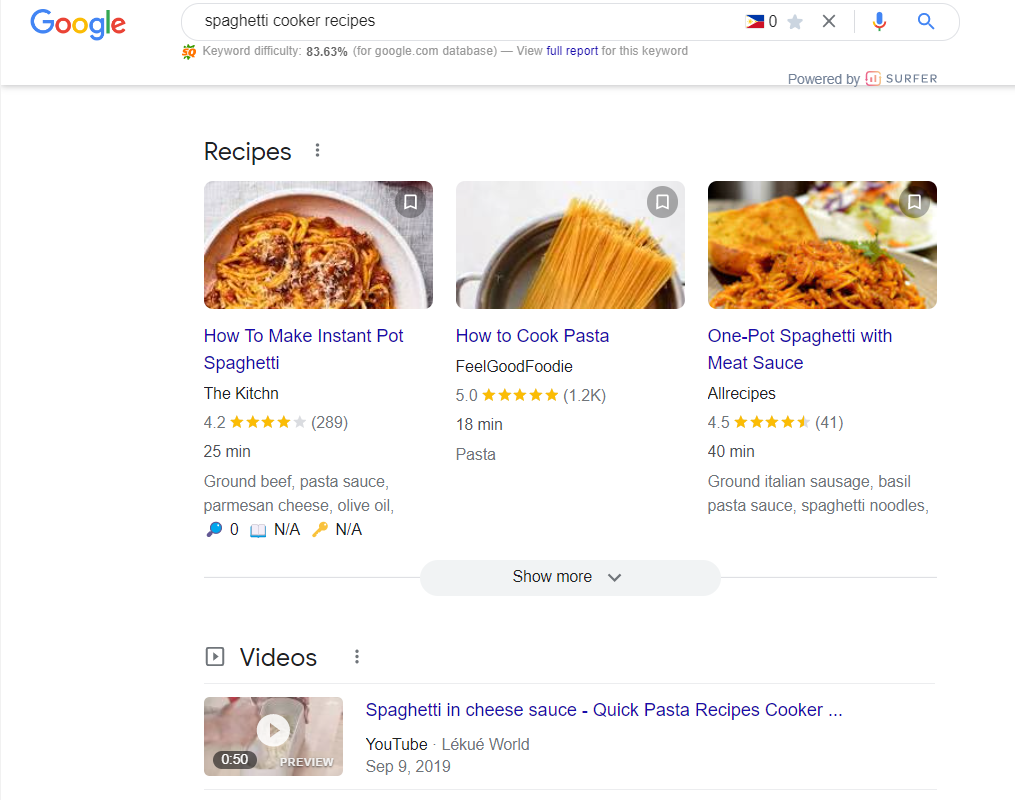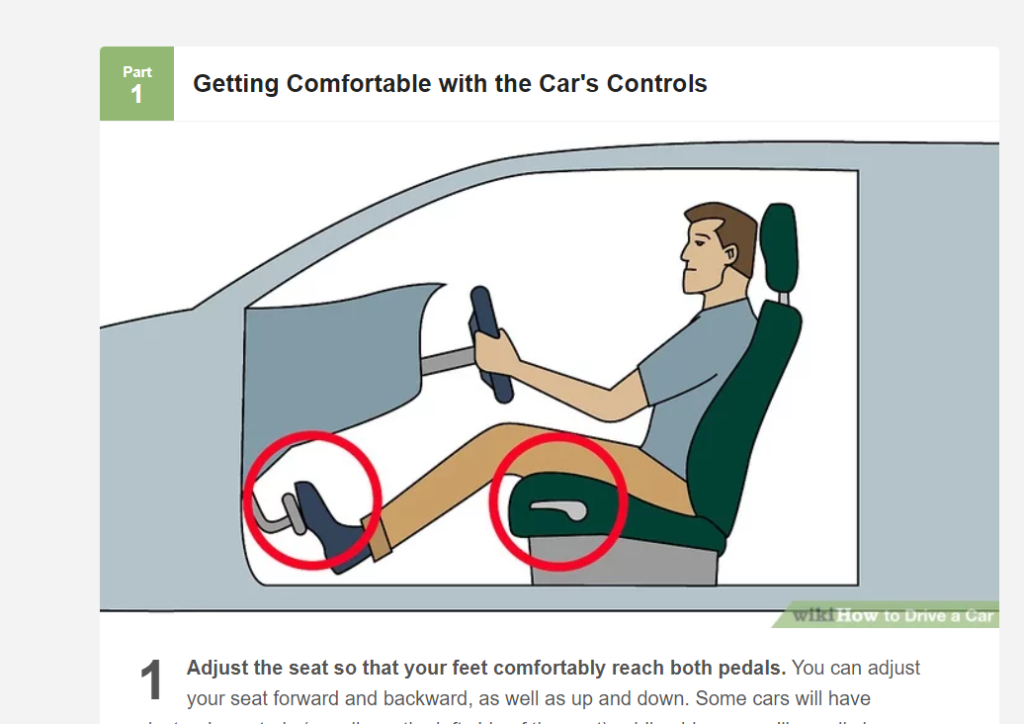What is SEO and Why is it Important for every business?
SEO stands for (Search Engine Optimization) and it’s the process of optimizing content to be discovered through a search engine’s organic search results. Let’s talk about how they work.
If you’re completely new to SEO, then it’s easiest to think of search engines as “libraries” But instead of storing books, they store copies of websites and web pages. So when you search for a query, the search engine will then look through all pages in its index and try to return the most relevant results. And SEO helps demonstrate to search engines that your page is the result.
Now, you might be thinking, why should I focus on SEO when there are so many other marketing mediums? Well, there are three major things that attract marketers to search engine optimization and in my opinion, these three things make SEO the best traffic source.
What Are The Benefits of SEO For Business?
1. Unlike paying for ads, search traffic is free.
Even if you slow down on SEO, you can keep getting more traffic over time. That’s the beautiful part, while with paid advertising, the moment you stop so does your traffic. With SEO, if you slow down, all that traffic that you’ve built up doesn’t go away. You can still maintain it and get it. It’s free and yes it does take time and energy to build content and link building, but it’s free because it’s so much cheaper and in general you can do SEO yourself.
2. Organic traffic is typically consistent once you’re ranking high.
Whereas other mediums like social media and email marketing often result in traffic spikes that usually end up fading to nothing. And it makes sense because social media networks are designed to surface fresh content. Emails often get marked as read, forgotten, or land in the spam box. Whereas search traffic is a result of users actively searching for information and the number of searches for a given topic is typically consistent month to month.
You have the opportunity to reach massive audiences you wouldn’t have access to otherwise.
In fact, as of October 2019, there were nearly 4.39 billion internet users around the world and almost 4 billion of those people are Google users. This is why search engine optimization is an 80 billion dollar industry and why marketers from all walks of life are adopting and pursuing it today. Everyone wants their business to get discovered and SEO is the perfect way to do that.
How does Google work?
Now, let’s briefly talk about How Google Works there are two parts to this.
1. Crawling and Indexation
These two things actually allow Google to discover web pages and create their search index. So to actually tin information, Google uses crawlers, also known as spiders, which gather publicly available information from all over the web.
The spiders will start crawling from a list of known URLs called seeds. Then they follow the hyperlinks on those pages and crawl those newly discovered pages. And this process goes and on and on, allowing them to collect a ton of information. They then take all of this data back to Google’s servers to be added to their “search index”. And that’s what people like you and I are searching through when we key in a query in Google.
Now, if you were to search for something and Google returned every result that mentioned your words on the page, then you’d end up with really bad results. This brings us to the second part which is Google’s ranking algorithm.
2. Google’s Ranking Algorithm
Google has hundreds of ranking signals and they make tweaks to their algorithm 500 to 600 times per year. So to be frank, no one knows exactly how their algorithm works. But they’ve given us clues and some guidelines to better understand the factors that are most important. In addition, other companies have done studies to test and better understand these factors.
I won’t bore you with over 200 ranking signals, many of which are just speculation at best, but I do want to cover a few of the most important factors that you’ll need to understand from a fundamental standpoint.
Types of Google Ranking Factors
1. Backlinks
First are backlinks, links from a page on one website to another. And Google has said on their How Search Works page that if other prominent websites link to a page, that’s proof to be a good sign that information is well trusted.
The easiest way to understand the value of a backlink is to think of them as votes. When a page receives a backlink, It’s essentially another website vouching for the content on the page. And the more “votes” you get from credible sources, the higher the trust. And we see the effect of backlinks on search traffic and found a clear positive correlation between backlinks from unique websites and a page’s organic traffic.
2. Search Intent
It represents the reason behind a searcher’s query. And if you think of Google’s goal for search, their job is to return the most relevant results for any given query. So with that said, you can discover search intent simply by looking at the top ranking pages for the query you want to rank for.
For example, if you search for “spaghetti cooker recipes”, you’ll see that the search results are mostly blog posts with a list of spaghetti cooker recipes. So if you try to rank a product page where you’re selling a slow cooker, you won’t be matching search intent and therefore, you won’t rank.
Now if we change the query to just “ spaghetti cooker”, you’ll see that the dominant types of pages are Ecommcer category pages.
So if you try and rank your blog post on spaghetti cooker recipes, then you probably won’t rank because you’re not matching search intent.
3. Content Depth
Search engines are made up of computer programs. So they can’t actually read and understand text like you and I would. Nevertheless, Google has poured billions of dollars into creating sophisticated technology that understands the content to a certain degree. But it’s your job as a content creator to provide context about the subject.
For example, if you look at the top-ranking pages for the query “how to drive a car” you’ll find that they talk about things like fastening your seatbelt, familiarizing yourself with the gas and brake pedals, adjusting your seat and mirrors, and other things that a first-time driver may not know. Basically, you want to be able to answer the searcher’s query the best that you possibly can. And naturally, it should lead to content that has depth.
Now, it’s important to note that depth doesn’t always translate to length. For example, a topic like “how to turn off iPhone 12” doesn’t need to and shouldn’t be long. In fact, the top-ranking page is only 185 words. But the content itself solves the user’s query from start to finish.
If you need help with ranking your business on search engines feel free to book a free consultation, Click here











Thanks for this! I’ve been working on SEO and it looks like from your article I’m on the right track!
Hello Wendie, I’m glad that you find my blog fits your needs 🙂 take care.